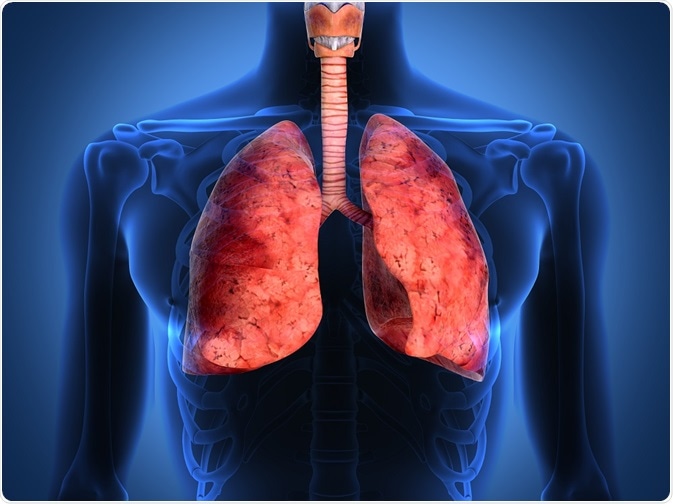Asthma is a chronic inflammatory disorder of the airways that causes airway narrowing (bronchial hyperactivity), leading to recurrent episodic symptoms such as wheezing, shortness of breath, chest tightness, and coughing, especially at night or early in the morning.
The exact cause of asthma is unknown. Researchers believe that a combination of genetic and environmental factors can cause asthma, most often occurring early in life. What are these causes?
- Tendency to develop allergies, known as atopy
- Parents who have asthma
- Certain respiratory infections during childhood
- Exposure to some airborne allergens or some viral infections during infancy or early childhood when the immune system is developing
Symptoms that appear in asthma sufferers include: phlegmy cough, shortness of breath, wheezing, a history of allergies, and a family history of asthma. These symptoms are also characterized by triggering factors, recurrence, or disappearance, worsening at night, and can subside spontaneously with or without treatment.
Triggers are factors that can provoke asthma. Each individual has different triggers. Asthma triggers include:
- Animal fur
- Cigarette smoke
- Household smoke
- Dust on pillows and mattresses
- Strong odors
- Insecticide sprays
- Pollen and flowers/plants
- Weather changes
- Fatigue, exhaustion
- Psychological/stress
- Flu
- Certain foods/drinks: seafood, shrimp, soy, eggs, milk, carbonated drinks
- Certain medications: aspirin, antibiotics, steroids
What should you do to treat asthma?
In asthma treatment, there are two main goals: relieving symptoms and preventing recurrence. Therefore, it is important to seek medical treatment to get the appropriate medication.
Besides treatment, asthma sufferers must avoid things that can trigger asthma attacks. Doctors usually recommend inhalers for treatment when asthma symptoms appear. However, the use of inhalers can also cause side effects.
Mild inhaler side effects include:
- Dizziness accompanied by headaches
- Insomnia or difficulty sleeping
- Muscle pain
- Nasal congestion or runny nose
- Dry mouth and throat
- Cough even without illness
- Sore throat to hoarseness
Severe side effects that need to be watched for, and for which you should immediately contact a doctor, include:
- Chest pain, irregular heartbeat
- Hand tremors
- Anxiety symptoms
- High blood pressure
- Decreased potassium levels in the blood, which, if left unchecked, can cause extreme thirst, muscle weakness, and fatigue
- Difficulty breathing
Side effects of steroid hormone inhalers include:
- Mouth sores
- Fungal infections in the mouth
- Weak bones in adults
- Glaucoma or eye fluid buildup, and high blood pressure in the eyes with long-term use
If an asthma attack occurs with worsening symptoms despite treatment with inhalers or medication, medical intervention in a hospital is needed as asthma can be life-threatening.
Prevention of asthma is better than treatment.
Managing a healthy lifestyle can control asthma. Additionally, consider the following to maximize asthma prevention:
- Identify and avoid asthma triggers
- Follow the asthma management plan from your doctor
- Take proper treatment steps by recognizing the causes of asthma attacks
- Use asthma medications recommended by your doctor regularly
- Monitor airway conditions
It's important to note that inhaler use can increase asthma reactions. Therefore, it is essential to discuss it with your doctor so that the asthma management plan can be adjusted to your needs. Flu and pneumonia vaccinations are also highly recommended to prevent asthma from worsening.
If you have any health concerns, see your doctor immediately. Don't forget to regularly check your health to help detect issues before symptoms appear.

Post a Comment for " Asthma: Causes, Symptoms, Treatment & Prevention of Asthma"